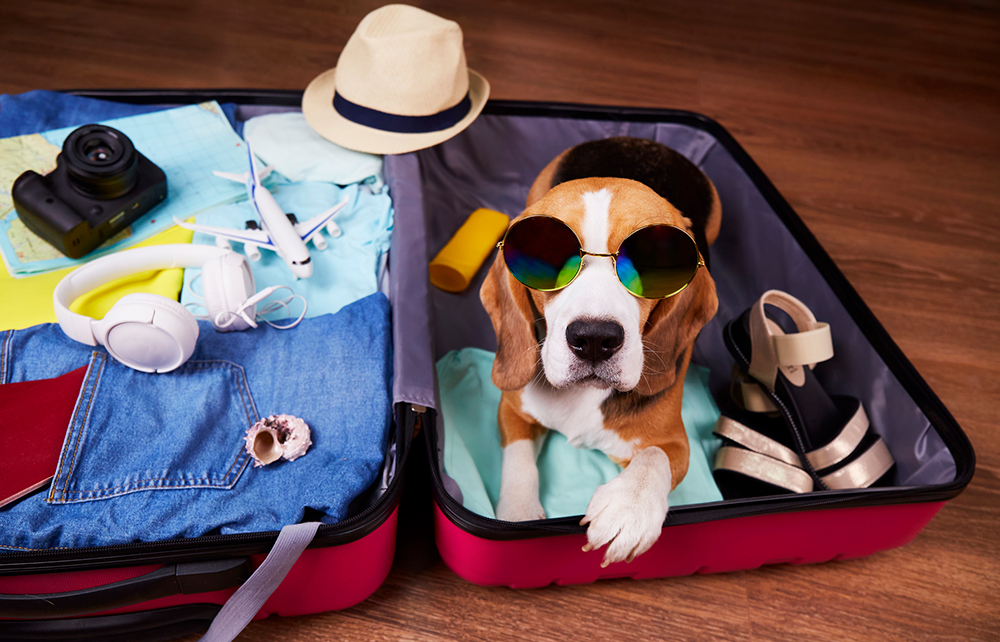As a travel writer, I used to joke about the so-called ‘downsides of the job’. The stupidly complex shower-fixture in the five-star Maldivian Paradise. The unexpected commission to go to Denmark in winter. The vague but real sting of disappointment upon realising that the free hotel pillow-chocolate is actually a mint.
But in recent years a genuine and troubling downside has arisen. When I meet someone and tell them what I do, the listener often winces, perhaps with a hint of moral superiority, and says something like: ‘Don’t you feel guilty about your carbon footprint? You’re killing the planet!’
This query pains me because, while I may question a few details of climate change theory, and while I find Just Stop Oil trustafarians as annoying as anyone, I can say that I have seen – with my own travelling eyes – what the last 40 years of urban, demographic and industrial expansion have done to Planet Earth. And it ain’t pretty.

Let me give some examples. Across much of the world I have witnessed the near-complete disappearance of vultures, due to poisoning, farming and a hideous trade in their body parts for use in traditional medicine or as spiritual protection. The collapse is so bad that Indian Zoroastrians have had to abandon their traditional sky burials which rely on vultures to scavenge corpses. In Kenya I’ve stroked one of the last northern white rhinos; in Madagascar I’ve watched forests torched as I stand there; in Egypt I’ve driven 200 miles across the Sahara and noted plastic litter all the way.
So, yes, I feel sad and guilty about the way we humans treat our planet, travel writers very much included.
But all is changed. Now someone has come to my rescue, and made me feel a lot better – at least relatively. His name is Patrick Hansen, and he’s the boss of private-jet firm Luxaviation. At a media event recently, Hansen claimed that the average private-jet customer is responsible for about the same emissions of carbon dioxide as someone who owns three medium-sized dogs. Or just one big dog.
Owning a big dog generates twice as much carbon dioxide a year as driving an average car
Is owning pets as bad for the planet as flying? It’s a startling claim, especially when you remember that Hansen is talking about a user of private jets. The kicker is – even if you dispute the precise numbers, as some do – Hanson undoubtedly has a point. So if you have a pet – especially a cat or a dog – you’re in no position to lecture anyone about their green credentials, because your carbon pawprint is probably enormous, and pets are damaging in multiple other ways, too.
Here are some numbers for a troubled conscience to chew over. In the US, meat consumption by pets generates 64 million tons of CO2 annually. That’s the equivalent of driving 13.6 million cars. And if all the dogs and cats in America were a nation, it would be the world’s fifth largest in terms of meat consumption. That’s meat which could go to hungry humans. But doesn’t. Meanwhile, simply owning a big dog generates 2.5 tons of CO2 a year (twice as much as driving an average car).
Then there’s the other end of the animal. In the UK, dogs produce as much faeces as at least five million humans. This degrades ecosystems, poisons waters, harms wildlife and harbours toxic bacteria. It is as bad as the human and agricultural waste polluting our rivers; we just prefer not to think about it. Cat excrement, aside from fouling the environment, is laden with bacteria, fungi and parasites such as feline toxoplasmosis, which can cause human blindness, deafness, seizures, heart issues and mental disorders. It’s particularly menacing to pregnant women, babies and the immunocompromised.
This is no small matter: toxoplasmosis is regarded as a ‘leading cause of infectious foodborne death’ in the USA. Some historians even blame the late medieval witch craze on the same parasite – lonely old women who kept cats were more likely to be infested with the bug, then go half-mad, encouraging neighbours to allege witchery, and see them burned.
The list of pet negatives goes on. Think of all that land set aside to grow the food that feeds the pets. Millions of acres. Think of all the waste and CO2 created to make a billion pet toys. Think of the methane pets emit when they aren’t pooping the environment into oblivion: one British study estimated that the flatulent dogs of Sheffield alone produce 1,500 tons of methane a year.
Then there’s animal behaviour. In 2021, 7,400 people in the UK were admitted to hospital suffering from dog bites (a problem which is swiftly getting worse with grotesque breeds like American bully XLs). Say what you like about pampered travel writers, but we don’t go around savaging people in parks.
Consider, too, the intense destruction wrought on nature by domestic cats. One study last year estimated that UK cats kill 160-270 million wild animals every year – a truly stupefying statistic. At least a quarter of these slaughtered creatures are birds.
The case is surely made. Pets are a tremendous drag on the planet, and it’s not like we even need them. Aside from a few exceptional cases – working rural animals, companions for people with severe loneliness, guide dogs for the blind – there is no logical justification for having a pet beyond sentimental reasons. Therefore, if you own a cat or a dog while still whining about ‘the environment’, you are that unpleasant thing: a hypocrite.
Of course, I am a hypocrite too. I claim to care about the environment while taking multiple flights. We are all selfish in our own way. But I reckon I am less of a hypocrite than most people, because most people own pets. And I don’t. Which means it is a rare moment for me to feel faintly superior, as I zip off to Brazil.






Comments